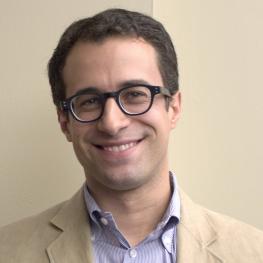Byways
Ten years ago I was working toward my doctorate at Penn and had the privilege of studying with some of the accomplished and engaging fellows at the Katz Center. It was one of the healthiest and most vital of David Ruderman's brainchildren: the “modular,” according to which graduate students spend a few weeks cycling through mini-courses with the best scholars in the world, all in the hospitable confines of the Center. I distinctly remember one three-week session with Gad Freudenthal, a fellow from the Centre National de la Recherche Scientifique in Paris, and a brilliant expositor of Jewish philosophy in the Middle Ages. We were reading Maimonides—an excerpt from his Mishneh Torah that concerned cosmology. One by one we went around the table and offered our translations of texts, which we had spent hours preparing. We had looked up the proper JPS language for biblical verses and Marcus Jastrow's renderings of rabbinic terms. We had buffed and polished our versions. Nevertheless Professor Freudenthal nonchalantly corrected us, substituting our flabby English with precise, lean expressions that perfectly captured Maimonides' intentions. It sounded as though Freudenthal had swallowed and digested the entirety of Jacob Klatzkin's Otzar ha-munahim ha-filosofiyyim (Berlin, 1928–33), the peerless guide to scientific and philosophical Hebrew of the Middle Ages, which Freudenthal deployed effortlessly. At one point a fellow student, who now teaches Jewish history at an elite American university, leaned over to me and whispered "do you understand how remarkable it is that he's correcting our English? We've spoken this tongue since the cradle, and for him it's his third language!" I understood, and together we mourned our linguistic inelegance.
This winter I had the honor to teach in the modular. I could not offer the students Professor Freudenthal's bottomless learning, nor his philological expertise, nor his international renown. What I could do was lead spirited conversations based on a curated selection of texts, and bask in the glow that results when Penn's extraordinary graduate students, who come together from fields as disparate as Germanic Languages, Classics, and Religious Studies, get together and read a text. One fault with contemporary graduate education, professors whinge, is that it's too compartmentalized; no one talks to colleagues and fellow students in other departments. Mutated, in-bred dissertations result. The modular course at the Katz Center offers an alternative to disciplinarity, and maybe an antidote to it. One of the thrills of my year as a fellow at the Katz Center has been to participate in this extraordinary tradition, and to pass on a portion in turn of what my teachers taught me.
